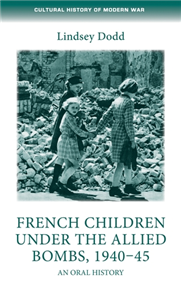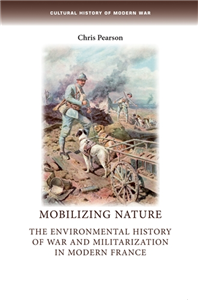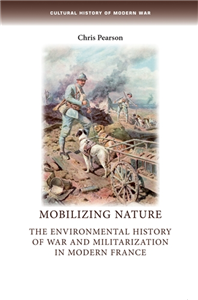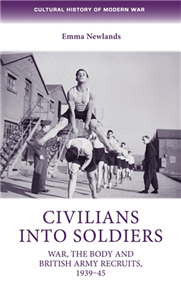Civilians into soldiers
War, the body and British Army recruits, 1939–45
by Emma Newlands
Civilians into soldiers is an examination of body cultures in the British Army during the Second World War. Drawing on a wealth of official records and servicemen's personal testimonies, it explores the ways in which male civilians were turned into soldiers through the techniques by which they were inducted into military service. It follows the chronological experiences of wartime recruits, from their enlistment and training to their confrontations with wounding and death, and traces the significance of the body throughout. As such, it provides new ways of understanding how the British prepared for and conducted the Second World War. Civilians into soldiers will appeal to students and specialists in British social and cultural history, war studies and military medicine and health.























